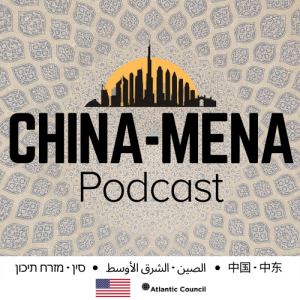Pilot
FIND THE CHINA-MENA PODCAST ON THE APP OF YOUR CHOICE
The China-MENA podcast features conversations with academics, think-tankers, and regional specialists on Chinese Influence in the Middle East and informs US and MENA audiences in the policy and business communities about the nature of China’s outreach to the region.
The China-MENA Podcast is a monthly program that goes beyond the headlines to provide a deeper look at engagement between China and countries in the Middle East – North Africa and give our listeners a better understanding of an important emerging geopolitical shift.
In each episode, we will be talking with experts on different facets of China-MENA relations, such as the Sino-Iranian bilateral relationship, China’s soft power projection into the region, its growth in tech sectors, and China’s approach to Middle East security and development.
At a time when China’s global footprint is getting deeper and deeper, it has never been more important to understand its foreign policy and the Middle East is one of the world’s most consequential regions: home to major religions, diverse cultural and social heritage, central to global energy markets, and of course, geopolitics, linking people and markets in Asia, Africa and Europe. This show will help you understand what China is doing in the region, and how the region is engaging with China as an increasingly important external power.
Tune in for our first episode on February 15, when we will host Professor Anoushrivan Ehteshami to discuss China and Iran relations and the state of the bilateral relationship, including the comprehensive strategic partnership the two countries finalized last spring, the possibility of Iranian membership in the Shanghai Cooperation Organization, and China’s role in the JCPOA.

Podcast series
Listen to the latest episode of the China-MENA podcast, featuring conversations with academics, government leaders, and the policy community on China’s role in the Middle East.
Hosted by
This podcast was funded in part by a grant from the United States Department of State. The opinions, findings, and conclusions stated herein are those of the author and do not necessarily reflect those of the United States Department of State.






